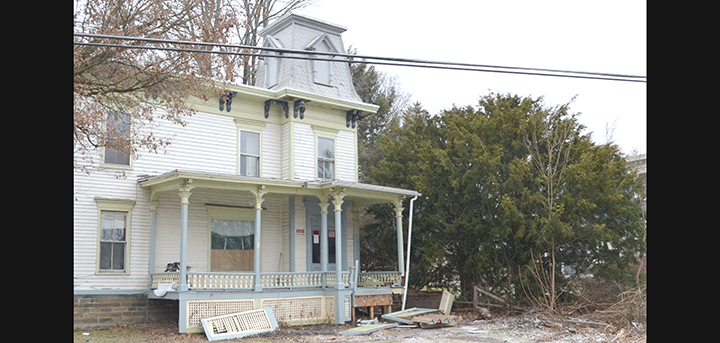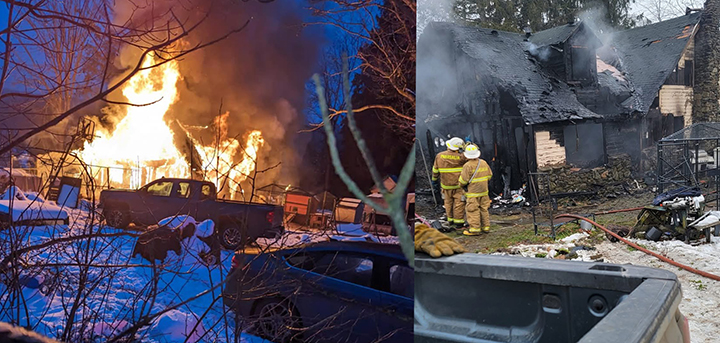Free Training Offered In Sidney In An Attempt To Prevent Heroin Overdose
Published:
October 6th, 2015
By:
Ashley Babbitt

SIDNEY – With opiate and heroin use at epidemic levels in many areas, a group in Sidney is holding a free event open to the public in an attempt to train attendees to potentially save lives.
The Southern Tier AIDS Program (STAP) will be hosting an informational session and training on the administration of Narcan (naloxone) at 6:30 p.m., Thursday, Oct. 8, at the Sidney Fire Department, 74 River St.
“I've had many people reach out to me for various reasons due to my unfortunate life experiences with heroin,” said Sarah Francis who will be attending the event Thursday. “I lost my oldest of two sons to an accidental heroin overdose almost six years ago. I'm having a hard time finding the words to describe the horror of learning my younger son somehow chose this same path and is now having to deal with the horrific circumstances of his choices. Each time a parent now reaches out to me, the first piece of advise I give is to get to a class for Narcan training or to contact Southern Tier AIDS directly as they will train you and provide you with the potentially life saving kit.”
Narcan will work to reverse a potential overdose of not only heroin, but many other prescription opiates, including codeine, fentanyl, hydrocodone, hydromorphone, Demerol, methadone, morphine, and oxycodone.
Sheila Terry, who has been promoting the event for weeks, said on the Facebook page dedicated to the mission, “Anyone who may come in contact with someone who is using an opiate or opioid is encouraged to attend, including professionals, community members and concerned family members.”
Attendees will learn the signs and symptoms of heroin and opioid overdose, how to administer Narcan to respond to an overdose, and will receive a free intranasal or intramuscular Narcan kit to carry and use if necessary.
“The class will take one hour of your time and can save a life,” said Terry.
“I really wish that addiction wasn't such an issue. I also just wish that people would understand that it is a disease, and we should never look at these people like less. They're people too,” said 21-year-old Caci Day. “They just are facing some sort of issue that is so deep rooted, that they turn to drugs. It's a sad thing watching people become so dissolved into almost nothing because of this epidemic.”
Continued Day, “I've lost someone I once called a friend, very recently too. I feel like everyone who knows people who are struggling with either use, or addiction, should be trained in how to stop the overdose from occurring. This is one of the quickest reactions to helping someone who is on a slippery slope between waiting for paramedics to come to their door, and death itself.”
Because of the 911 Good Samaritan Law that was passed in 2011, those who may wind up administering Narcan need not worry about ramifications. Both the individual who administers the Narcan and the individual who experienced the overdose are protected under the law, which was put in place to encourage calling 911 when a medical emergency is suspected or happening, even if there are illegal drugs on the person or in the residence.
“You do not need to know the person you are rescuing,” said Terry. “Please do not get certified because you think you currently do not know someone doing drugs. It could save a life of someone you know.”
It is wise to have police or EMS en route, therefore it’s encouraged that the administrator of the Narcan call 911, but STAP does not require reporting the use of the Narcan. STAP does like to hear if the rescue attempt was successful and any details you feel comfortable giving but they do not require anyone to report the name or personal information about the person rescued. If a kit is used, once trained a person will have the access to receive a new kit through STAP.
“This is the first person that I've personally known who has fallen from this disease,” said Day regarding the passing of her friend. “I know a few other people through high school who have fallen as well.”
Day continued, “I'm 21 years old now, and started to hang out with people who were involved in this type of behavior when I was 17. Fortunately, I was never into the same kind of ‘fun’ as they were.”
According to Day, in addition to the training that will take place in Sidney, she thinks there are other measures that would help the community.
“I 100 percent believe that an inpatient treatment facility in Chenango County will do wonders,” said Day. “I believe this because we live in a poor economic area, and many people do not have the funds to travel to many rehab facilities, such as Florida, where many people I know have gone.”
Said Francis, “I have been in contact with Southern Tier AIDS about getting this set up in Norwich as well ... We, as a community, have to secure the venue and get the word out and they will do the training and provide the free kits.”
“I believe that we need to start talking about drugs more with our youth, and the dangers of it in a more realistic way, rather than ‘scare you out of doing them,” said Day. “Because the way our schooling portrays drug use is nothing like the real thing, in my opinion.”
Terry said that 130 people have registered thus far to attend Thursday. She said the event was prompted by public demand.
The overdose statistics in Chenango County were requested, but as of press time Tuesday, the Department of Public Health has yet to respond. Statistics will be published when they are made available.
To register, call or text Sheila Terry at 607-829-3000, or send her a message on Facebook.
Author: Ashley Babbitt - More From This Author
Comments





